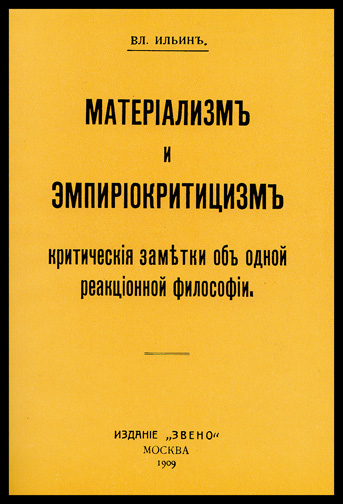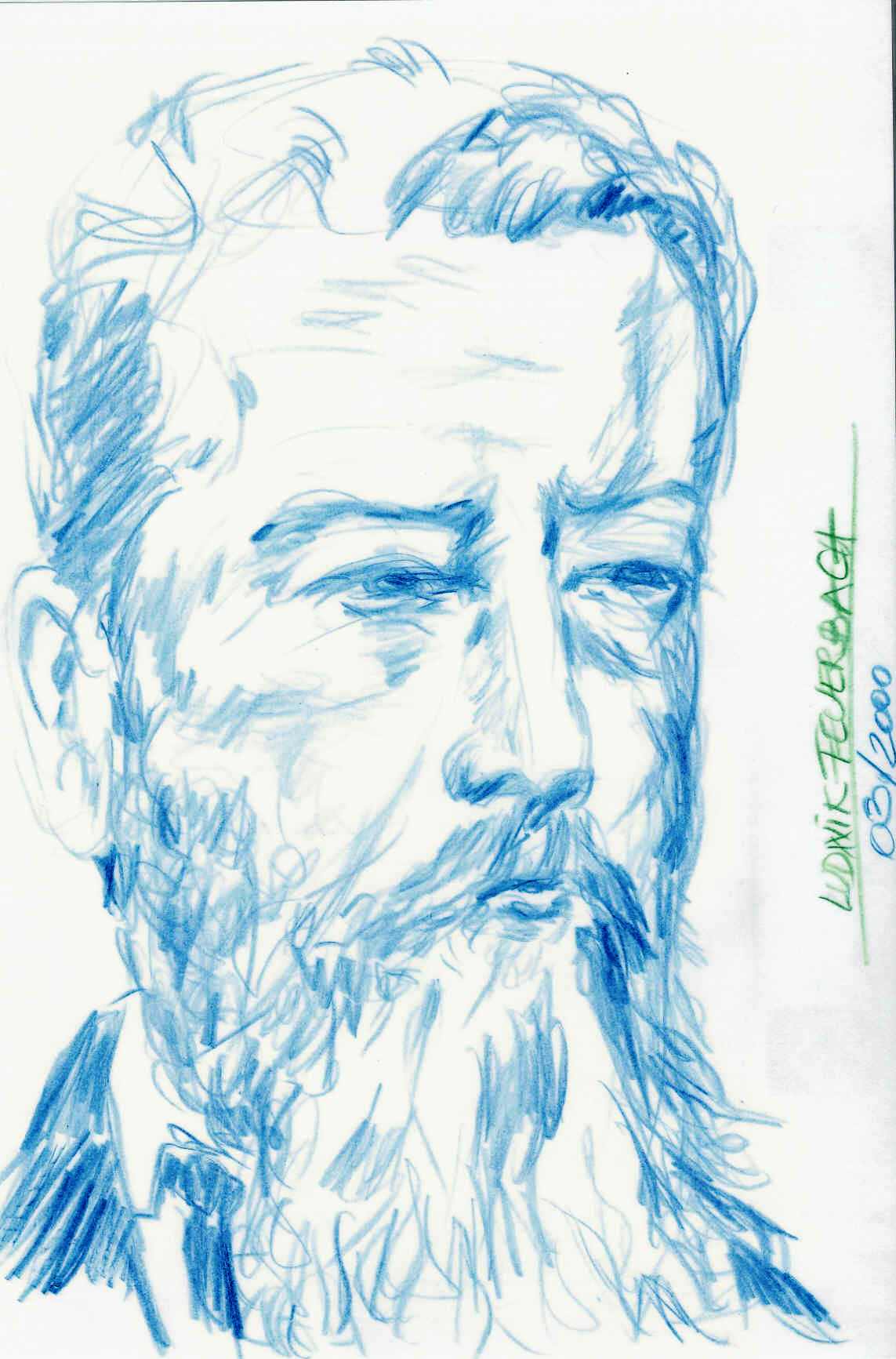|
Materialism And Empirio-criticism
''Materialism and Empirio-criticism'' (Russian: ''Материализм и эмпириокритицизм, Materializm i empiriokrititsizm'') is a philosophical work by Vladimir Lenin, published in 1909. It was an obligatory subject of study in all institutions of higher education in the Soviet Union, as a seminal work of dialectical materialism, a part of the curriculum called "Marxist–Leninist Philosophy". Lenin argued that human perceptions correctly and accurately reflect an objective external world. Lenin formulates the fundamental philosophical contradiction between idealism and materialism as follows: "Materialism is the recognition of 'objects in themselves' or objects outside the mind; the ideas and sensations are copies or images of these objects. The opposite doctrine (idealism) says: the objects do not exist, outside the mind '; they are 'connections of sensations'."W. I. Lenin: '' Materialism and empirio-criticism. Critical remarks about a reactionary philosophy ... [...More Info...] [...Related Items...] OR: [Wikipedia] [Google] [Baidu] |
Solipsism
Solipsism (; ) is the philosophical idea that only one's mind is sure to exist. As an epistemological position, solipsism holds that knowledge of anything outside one's own mind is unsure; the external world and other minds cannot be known and might not exist outside the mind. Varieties There are varying degrees of solipsism that parallel the varying degrees of skepticism: Metaphysical Metaphysical solipsism is a variety of solipsism. Based on a philosophy of subjective idealism, metaphysical solipsists maintain that the self is the only existing reality and that all other realities, including the external world and other persons, are representations of that self, and have no independent existence. There are several versions of metaphysical solipsism, such as Caspar Hare's egocentric presentism (or perspectival realism), in which other people are conscious, but their experiences are simply not ''present''. Epistemological Epistemological solipsism is the variety of ideali ... [...More Info...] [...Related Items...] OR: [Wikipedia] [Google] [Baidu] |
Osip Helfond
Osip Isaakovich Gelfond (russian: link=no, Осип Ге́льфонд) (1868–1942) was a Russian physician and Marxist philosopher. Osip studied at the University of Sorbonne, gaining a medical degree in 1896. He married Musia Gershevna in 1899, who had also recently graduated with a medical degree from the Sorbonne. Gelfond was friends with Anatoly Lunacharsky, Lazar Lagin and Lev Tumarkin. He participated in a seminar held in St Petersburg in 1908 by the Russian Machists which led to the publication of ''Studies in the Philosophy of Marxism''. He was the father of Alexander Gelfond Alexander Osipovich Gelfond (russian: Алекса́ндр О́сипович Ге́льфонд; 24 October 1906 – 7 November 1968) was a Soviet Union, Soviet mathematician. Gelfond–Schneider theorem, Gelfond's theorem, also known as the G ..., born in 1906. References Russian Marxists Russian people of Jewish descent 1868 births 1942 deaths {{Russia-bio-stub ... [...More Info...] [...Related Items...] OR: [Wikipedia] [Google] [Baidu] |
Jakov Berman
Jakov Alexandrovich Berman (Russian: Я́ков Алекса́ндрович Берма́н; 15 January 1868 – 1933) was a Russian people, Russian philosopher and political theorist linked to Russian Machism and pragmatism. In 1908 he published ''Dialectics in the Light of the Modern Theory of Knowledge'' and also contributed to ''Studies in the Philosophy of Marxism'', an anthology of works by Russian Marxist Machists, which Lenin criticised in ''Materialism and Empirio-Criticism''. Lenin also criticised his ''Dialectics in the Light of the Modern Theory of Knowledge''. In 1911 Berman published ''The Essence of Pragmatism''. After the Bolshevik seizure of power, he joined the Russian Communist Party (Bolshevik) and continued his academic career. References {{DEFAULTSORT:Berman, Jakov 1868 births 1933 deaths 20th-century Russian philosophers Marxist theorists Pragmatists ... [...More Info...] [...Related Items...] OR: [Wikipedia] [Google] [Baidu] |
Richard Von Schubert-Soldern
Richard Ritter von Schubert-Soldern (14 December 1852, Prague, Kingdom of Bohemia – 19 October 1924, Zwettl, First Austrian Republic, Austria) was a Kingdom of Bohemia, Bohemian-born Austrian philosopher. (His year of death is sometimes said to have been 1935.) Schubert-Soldern earned a doctorate at the Charles University, University of Prague in 1879 and habilitated at Leipzig University in 1882 with a thesis titled ''Ueber Trancendenz des Objects und Subjects'' (''On the Transcendence of the Object and Subjec''). He held teaching posts at Leipzig University and a Görz Gymnasium (Germany), gymnasium. He defended immanent philosophyNikolay Milkov, ''Early Analytic Philosophy and the German Philosophical Tradition'', London: Bloomsbury, 2020, p. 157. and epistemological solipsism. Works * ''Über Transzendenz des Objekts und des Subjekts'', 1882 * ''Grundlagen einer Erkenntnistheorie'', 1884 * ''Grundlagen zu einer Ethik'', 1887 * ''Reproduction, Gefühl und Wille'', 1887 * ''D ... [...More Info...] [...Related Items...] OR: [Wikipedia] [Google] [Baidu] |
Nikolay Chernyshevsky
Nikolay Gavrilovich Chernyshevsky ( – ) was a Russian literary and social critic, journalist, novelist, democrat, and socialist philosopher, often identified as a utopian socialist and leading theoretician of Russian nihilism. He was the dominant intellectual figure of the 1860s revolutionary democratic movement in Russia, despite spending much of his later life in exile to Siberia, and was later highly praised by Karl Marx, Georgi Plekhanov, and Vladimir Lenin. Biography The son of a priest, Chernyshevsky was born in Saratov in 1828, and stayed there until 1846. He graduated at the local seminary where he learned English, French, German, Italian, Latin, Greek and Old Slavonic. It was there he gained a love of literature. At St Petersburg University he often struggled to warm his room. He kept a diary of trivia like the number of tears he shed over a dead friend. It was here that he became an atheist. He was inspired by the works of Hegel, Ludwig Feuerbach and Charle ... [...More Info...] [...Related Items...] OR: [Wikipedia] [Google] [Baidu] |
Ernst Haeckel
Ernst Heinrich Philipp August Haeckel (; 16 February 1834 – 9 August 1919) was a German zoologist, naturalist, eugenicist, philosopher, physician, professor, marine biologist and artist. He discovered, described and named thousands of new species, mapped a genealogical tree relating all life forms and coined many terms in biology, including ''ecology'', '' phylum'', ''phylogeny'', and ''Protista.'' Haeckel promoted and popularised Charles Darwin's work in Germany and developed the influential but no longer widely held recapitulation theory ("ontogeny recapitulates phylogeny") claiming that an individual organism's biological development, or ontogeny, parallels and summarises its species' evolutionary development, or phylogeny. The published artwork of Haeckel includes over 100 detailed, multi-colour illustrations of animals and sea creatures, collected in his ''Kunstformen der Natur'' ("Art Forms of Nature"), a book which would go on to influence the Art Nouveau artistic mo ... [...More Info...] [...Related Items...] OR: [Wikipedia] [Google] [Baidu] |
Immanence
The doctrine or theory of immanence holds that the divine encompasses or is manifested in the material world. It is held by some philosophical and metaphysical theories of divine presence. Immanence is usually applied in monotheistic, pantheistic, pandeistic, or panentheistic faiths to suggest that the spiritual world permeates the mundane. It is often contrasted with theories of transcendence, in which the divine is seen to be outside the material world. Major faiths commonly devote significant philosophical efforts to explaining the relationship between immanence and transcendence but do so in different ways, such as: * casting immanence as a characteristic of a transcendent God (common in Abrahamic religion The Abrahamic religions are a group of religions centered around worship of the God of Abraham. Abraham, a Hebrew patriarch, is extensively mentioned throughout Abrahamic religious scriptures such as the Bible and the Quran. Jewish tradition ...s), * subsuming i ... [...More Info...] [...Related Items...] OR: [Wikipedia] [Google] [Baidu] |
Joseph Dietzgen
Peter Josef Dietzgen (December 9, 1828April 15, 1888) was a German socialist philosopher, Marxist and journalist. Dietzgen was born in Blankenberg in the Rhine Province of Prussia. He was the first of five children of father Johann Gottfried Anno Dietzgen (1794–1887) and mother Anna Margaretha Lückerath (1808–1881). He was, like his father, a tanner by profession; inheriting his uncle's business in Siegburg. Entirely self-educated, he developed the notion of dialectical materialism independently from Marx and Engels as an independent philosopher of socialist theory. He had one son, Eugene Dietzgen. Life as revolutionary and philosopher Early on in his youth, Joseph Dietzgen worked with the famed Forty-Eighters of the 1848 German Revolution. It was there that he first met Karl Marx and other socialist revolutionaries, and began his career as a socialist philosopher. Following the failure of the 1848 Revolution he spent some time in the United States from 1849 to 1851, retur ... [...More Info...] [...Related Items...] OR: [Wikipedia] [Google] [Baidu] |
Ludwig Feuerbach
Ludwig Andreas von Feuerbach (; 28 July 1804 – 13 September 1872) was a German anthropologist and philosopher, best known for his book ''The Essence of Christianity'', which provided a critique of Christianity that strongly influenced generations of later thinkers, including Charles Darwin, Karl Marx, Sigmund Freud, Friedrich Engels, Richard Wagner, and Friedrich Nietzsche. An associate of Young Hegelian circles, Feuerbach advocated atheism and anthropological materialism. Many of his philosophical writings offered a critical analysis of religion. His thought was influential in the development of historical materialism,Nicholas Churchich, ''Marxism and Alienation'', Fairleigh Dickinson University Press, 1990, p. 57: "Although Marx has rejected Feuerbach's abstract materialism," Lenin says that Feuerbach's views "are consistently materialist," implying that Feuerbach's conception of causality is entirely in line with dialectical materialism." where he is often recognized as a ... [...More Info...] [...Related Items...] OR: [Wikipedia] [Google] [Baidu] |
Vladimir Bazarov
Vladimir Alexandrovich Bazarov (Russian: Влади́мир Алекса́ндрович База́ров; 8 August Old_Style_and_New_Style_dates">O._S._27_July.html" ;"title="Old_Style_and_New_Style_dates.html" ;"title="nowiki/>Old Style and New Style dates">O. S. 27 July">Old_Style_and_New_Style_dates.html" ;"title="nowiki/>Old Style and New Style dates">O. S. 27 July1874 – 16 September 1939) was a Russian Marxist revolutionary, journalist, philosopher, and economist, born Vladimir Alexandrovich Rudnev. Bazarov is best remembered as a pioneer in the development of economic planning in the Soviet Union. He was one of the Russian Machism, Russian Machists, as Lenin dubbed the term, and was a close friend to Alexander Bogdanov. Early career Early years Vladimir Alexandrovich Rudnev was born on 8 August 1874 (N.S.) in Tula, Russian Empire. The son of a doctor, A. M. Rudnev, he enrolled in the Tula classical gimnaziia (high school) in 1884, and graduated in the spring of 189 ... [...More Info...] [...Related Items...] OR: [Wikipedia] [Google] [Baidu] |






